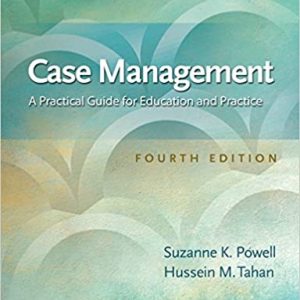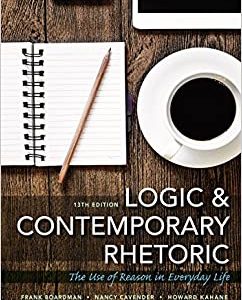Overview
NEW YORK TIMES?BESTSELLER ??An award-winning guide to the sometimes erratic and confusing behavior of teenage girls that explains what?s going on, prepares parents for what?s to come, and lets them know when it?s time to worry.
Look for?Under Pressure,?the companion guide to coping with stress and anxiety among girls, available now.
In this sane, highly engaging, and informed guide for parents of daughters, Dr. Damour draws on decades of experience and the latest research to reveal the seven distinct?and absolutely normal?developmental transitions that turn girls into grown-ups, including Parting with Childhood, Contending with Adult Authority, Entering the Romantic World, and Caring for Herself. Providing realistic scenarios and welcome advice on how to engage daughters in smart, constructive ways,?Untangled?gives parents a broad framework for understanding their daughters while addressing their most common questions, including
? My thirteen-year-old rolls her eyes when I try to talk to her, and only does it more when I get angry with her about it. How should I respond?
? Do I tell my teen daughter that I?m checking her phone?
? My daughter suffers from test anxiety. What can I do to help her?
? Where?s the line between healthy eating and having an eating disorder?
? My teenage daughter wants to know why I?m against pot when it?s legal in some states. What should I say?
? My daughter?s friend is cutting herself. Do I call the girl?s mother to let her know?
Perhaps most important,?Untangled?helps mothers and fathers understand, connect, and grow with their daughters. When parents know what makes their daughter tick, they can embrace and enjoy the challenge of raising a healthy, happy young woman.
BOOKS FOR A BETTER LIFE AWARD WINNER
?Finally, there?s some good news for puzzled parents of adolescent girls, and psychologist Lisa Damour is the bearer of that happy news. [Untangled] is the most down-to-earth, readable parenting book I?ve come across in a long time.??The Washington Post
?Anna Freud wrote in 1958, ?There are few situations in life which are more difficult to cope with than an adolescent son or daughter during the attempt to liberate themselves.? In the intervening decades, the transition doesn?t appear to have gotten any easier which makes?Untangled?such a welcome new resource.??The Boston Globe
Product Details
| ISBN-13: | 9780553393064 |
|---|---|
| Publisher: | Random House Publishing Group |
| Publication date: | 02/09/2016 |
| Sold by: | Random House |
| Format: | NOOK Book |
| Pages: | 352 |
| Sales rank: | 62,028 |
| File size: | 3 MB |
About the Author
Read an Excerpt
one
Parting with Childhood
In the waiting room of my private practice, I met Maya for the first time. With an easy air, long limbs, and dark hair showing the beginnings of gray, she stood to greet me, then gracefully pivoted to return the magazine she?d been reading to its place on a low table, next to a lamp. She followed me to my office and took the far end of my couch. It?s not the closest spot to the armchair where I sit, but not so far away as a chair preferred by clients who want more distance. She kept her light jacket on?we were meeting on a crisp, sunny day in late October?and crossed her legs, clasped her hands, and leaned forward as we talked.
Over the phone, Maya told me that she was worried about the sudden change in her relationship with her twelve-year old daughter, Camille. In my office, she told a familiar story? one that we?ll consider in a totally new light.
Maya explained that until two months ago, Camille had been her funny, joyful companion who was almost always up for a trip to the library, grocery store, or mall. Yet at the start of seventh grade, Camille abruptly transformed. She came home from school and headed straight to her bedroom, where she closed the door and held marathon texting sessions with friends until required to join the family for dinner. Bewildered, Maya described how Camille sat sullenly at the dinner table and gave one-word answers to questions about her day. Even while saying so little, Camille managed to express that her parents were asking the dumbest questions she had ever heard and that sitting with them was the last thing she wanted to do.
Occasionally, the old Camille made a brief appearance; Maya?s eyes brimmed with tears as she described these savored moments. Most of the time, though, Maya felt angry with Camille for being so prickly, missed her warm relationship with her beloved girl, or experienced a wearying mix of both feelings at once. Maya?s friends reassured her that Camille was ?normal? and that ?girls break up with their parents when they become teenagers,? but Maya had called me anyway. She worried that something just wasn?t right.
Maya?s friends weren?t wrong, but their scope was too narrow and their viewpoint far too personal. They were missing the bigger picture. Girls don?t dump their parents just for the heck of it. They pull away to start their journey along one of the seven developmental strands of adolescence: parting with childhood. By age twelve most tweens feel a sudden, internal pressure to separate themselves from almost everything that seems childlike and, as Maya was learning the hard way, a girl?s pleasant relationship with her folks is usually one of the first casualties. Parting with childhood isn?t always the first developmental strand that girls tackle during adolescence, but it?s a strand that parents can?t miss. When girls distance themselves from their mom and dad they all but announce, ?In case you guys hadn?t noticed, I?m a teenager now!?











